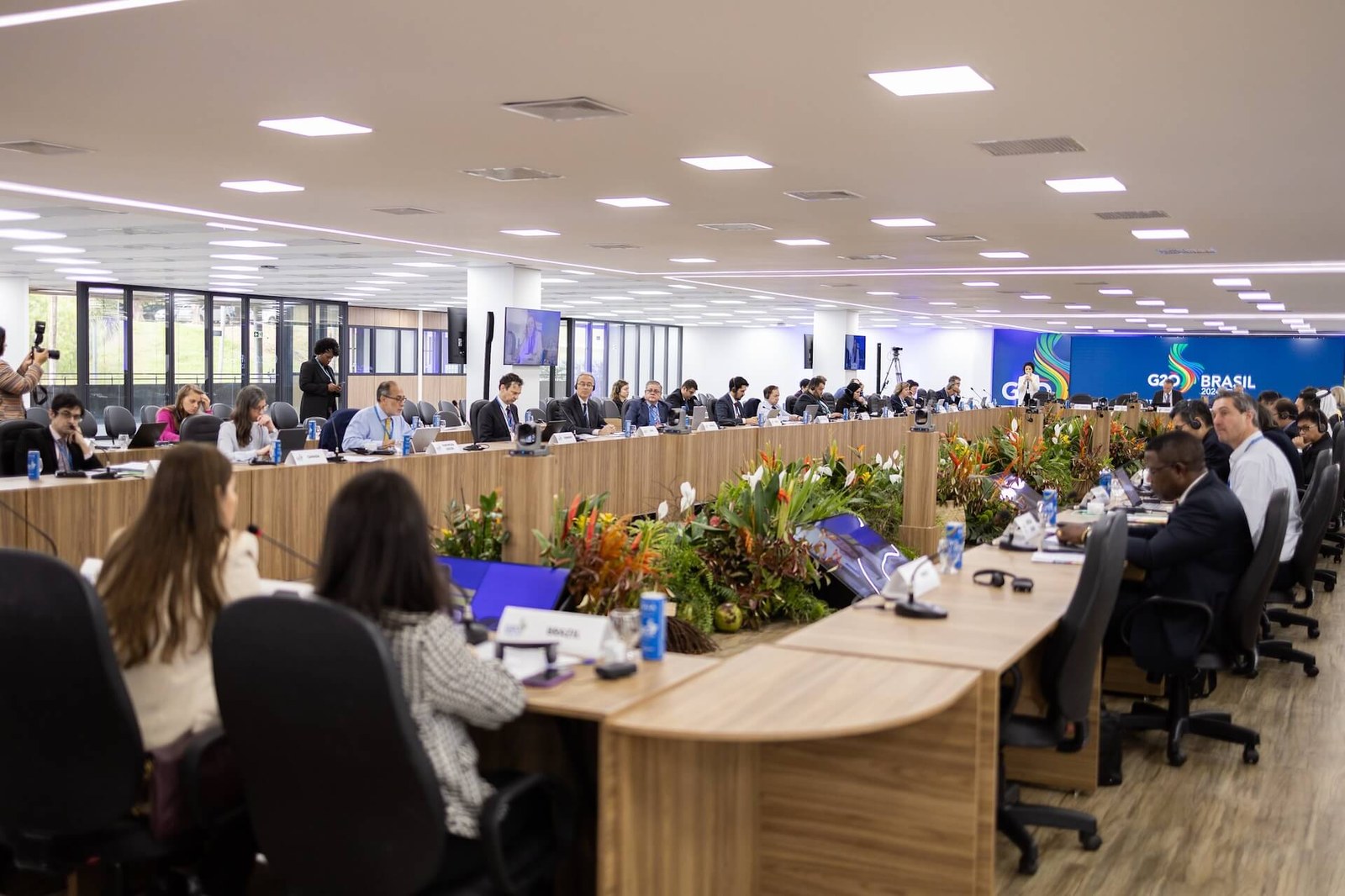Focusing on sustainability and inclusion, G20 concludes the technical stage of discussions on trade and investments under Brasil's presidency
The Trade and Investment Working Group concludes the last round of technical negotiations before the ministerial meeting in Brasília, with topics such as reform of the World Trade Organization (WTO) and the participation of women in international trade.

Brasília became the epicenter of global discussions on trade and investment this week as the G20's Trade and Investment Working Group (TWG) holds its last technical meetings under the Brazilian presidency. Between October 21st and 24th, representatives of 37 countries and international organizations discussed priorities ranging from sustainable development to the inclusion of women in international trade, with the expectation of reaching consensus for the ministerial meeting on October 24th.
The highlight of this cycle of meetings is the presentation of a final document with the results of the debates, which will be taken to the G20 Leaders' Summit in November in Rio de Janeiro. The discussed agendas include reforming the World Trade Organization (WTO), strengthening the relationship between trade and sustainability, and promoting women's participation in global trade.
In a briefing held on October 22nd, Ambassador Fernando Pimentel, director of the Department of Trade Policy of the Ministry of Foreign Affairs (MRE), highlighted the four main axes of the Brazilian agenda: “We are focused on the WTO reform, the inclusion of women in international trade, sustainability clauses in investment agreements and the development of G20 principles for the connection between trade and sustainability.”
In a briefing held on October 22nd, Ambassador Fernando Pimentel, director of the Department of Trade Policy of the Ministry of Foreign Affairs (MRE), highlighted the four main axes of the Brazilian agenda: “We are focused on the WTO reform, the inclusion of women in international trade, sustainability clauses in investment agreements and the development of G20 principles for the connection between trade and sustainability.”
Pimentel stressed that, despite the challenges, Brasil is leading a process of collective engagement to formulate policies that bring concrete benefits to sustainable development: "We want to establish how governments should proceed when designing policies so that they contribute positively to sustainability," he said.
Tatiana Prazeres, Foreign Trade Secretary of the Ministry of Development, Industry, Trade and Services of Brasil (MDIC), reinforced the relevance of placing female participation at the center of the discussions: “For the first time in history, the G20 treats the inclusion of women in international trade as a high priority. We shared good practices throughout the year, and the goal now is to consolidate these initiatives into a compendium that serves as a guide for countries interested in removing barriers for women,” said Prazeres.
She also emphasized that the G20 has a central role in advancing WTO negotiations, providing the political impetus needed to overcome impasses. "The support of the G20 is necessary, but not sufficient for full progress, and this is why working together with other nations becomes vital," she said.
Sustainable development in investment agreements is also one of the Group's main themes. According to Ambassador Philip Fox, Director of the Department of Economic Policy, Finance and Services of the Brazilian Ministry of Foreign Affairs, since 2013 Brasil has been a pioneer in including sustainability clauses in these agreements. He mentioned a study commissioned from UNCTAD and the OECD, which mapped out how these clauses have been implemented in recent agreements.
Fox stressed that the Brazilian model of investment agreements seeks facilitation and cooperation, avoiding litigation and focusing on the inclusion of social clauses. "This model is being promoted globally, and we have already signed with 16 partners, with many others under negotiation," he said.
Marcela Carvalho, executive secretary of Camex (Foreign Trade Chamber), addressed the importance of ensuring that sustainability clauses are a reality in all new investment agreements. "Today countries are not only looking for investments that generate jobs and income, but also those that respect the environment, human rights and social inclusion," she said.
She mentioned the participation of Canada and South Africa in the debates, highlighting that South Africa, which will assume the presidency of the G20 in 2025, is an important part of ensuring the continuity of discussions on sustainability and inclusion in global investments.
After the technical and bilateral discussions taking place until October 23rd, the G20 trade ministers meet on the 24th to conclude the agreements and forward the results to the November Summit. Among the main expected results are advances in the WTO reform and the consolidation of the principles that align international trade with sustainable development, consolidating Brasil's G20 presidency as a milestone for innovation and global cooperation.
Translated by PGET-UFSC